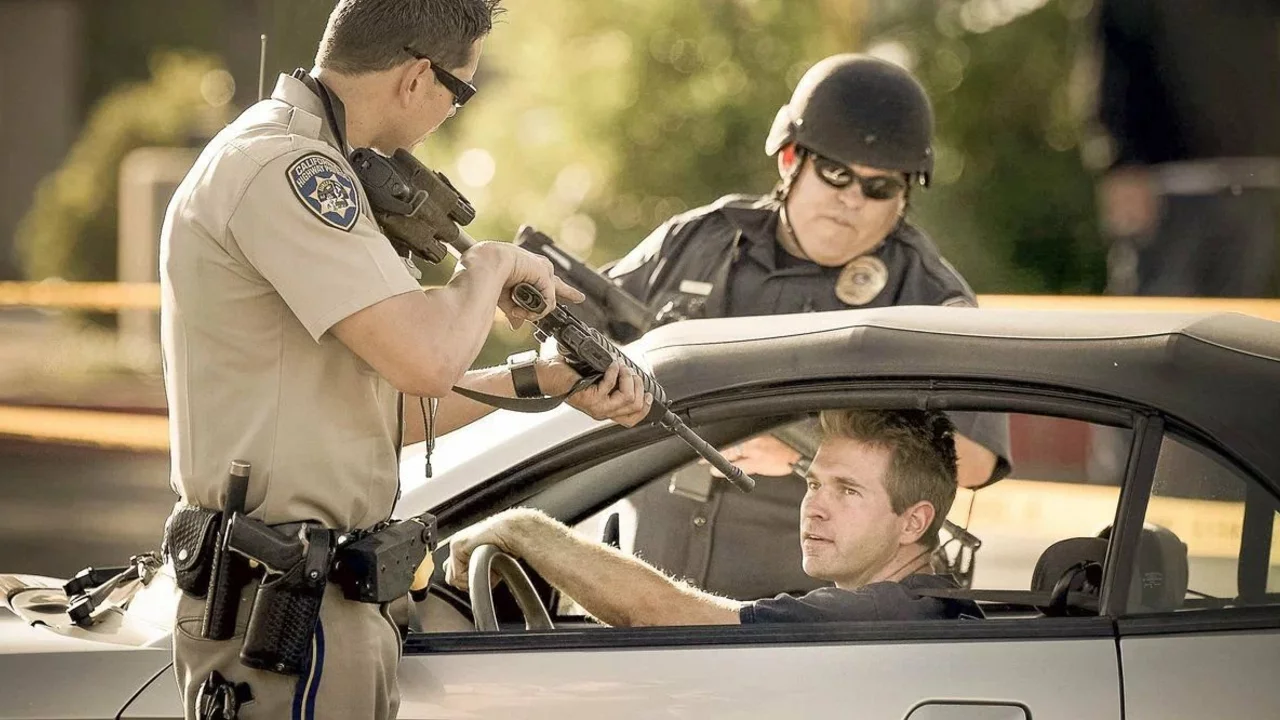Should I pull the keys out of my ignition during a traffic stop?

"Wait, Should I really pull the keys out of my ignition during a traffic stop?”
Well, isn't that just the question of the hour? A question that you probably never thought you'd be asking yourself until you found yourself amidst the flashing red and blue lights in your rearview mirror – cue the dramatic music. Right in that nerve-wracking moment, your brain starts to scramble, attempting to recall every fragment of advice you’ve ever received about handling a traffic stop. But fret not, dear reader, for I, Darius, your friendly neighbourhood blogger, am here to help dissect this enigma! Let's dive in, shall we?
Understanding Traffic Stops and the Law
You might think that pulling keys out of the ignition during a traffic stop is a bit overdramatic, like something out of a thriller movie or crime show. And, truth be told, it might not hurt to add a little Hollywood glamour to our lives. However, the reality of the situation is not that far off. The law enforcement officers' interaction is rooted in maintaining a balance, ensuring your safety, the safety of the police officer, and, of course, the safety of Ziggy and Avery, my bearded dragon and parakeet. In doing so, several standard protocols have been established – these shape the dynamics of a roadside police interaction. One might argue, it’s just like training Ziggy to do his little tricks – clear boundaries, lots of understanding, and some patience.
"But spinning the yarn, Darius, do I pull the keys out?”
Hold your horses, I'm getting there! Here's the thing: laws vary from country to country, sometimes even city to city. That’s why it's essential to become familiar with local laws and customs. And now comes the part that you've all been anxiously waiting for: pulling the keys out of the ignition. Yes, you probably should. It’s not an exaggerated action but one that affirms, in a loud and clear message, the police officer's safety. By cutting off the vehicle's power, you confirm that the vehicle is out of action, thereby easing off tension. It’s like when I turn off the music Avery loves to sing to – Avery knows it’s bedtime, no questions asked.
Remember Emphasis on Safety!
Safety, at the end of the day, is the ultimate goal of every traffic stop - the trooper’s safety and yours, as the driver. By turning off your vehicle, you create a level of trust that security is your top priority too. And it should be! You wouldn't want any misunderstandings that may escalate the situation. Much like how Avery doesn’t like Ziggy too close to the cage - a clear parameter understands to restrain Ziggy from getting too fascinated with the feathery little creature.
Policing a Society like Policing Ziggy and Avery
The purpose of laws and regulations is to create a peaceful and orderly society and make the environment safe and secure for its citizens. Remember when I had to establish house rules when I first brought Ziggy and Avery home? Ziggy was a bully to Avery, and Avery was a bit noisy for Ziggy's liking. So, I came up with rules that made our cohabitation peaceful and safe. Think of our traffic laws as house rules; they are in place to keep our roads safe.
Thinking about things from a Larger Perspective
The principles we learn from traffic stops go beyond just the road. Laws govern all aspects of our lives, from the macro perspective of interstate relations to the micro interplay between Avery and Ziggy. Traffic stops teach us patience, respect, and the importance of good communication. But most importantly, they bring a realization of our personal duties as citizens and our potential roles in making our communities safer. So next time you find yourself in that stressful situation, remember to stay calm, pull the ignition key out, show your hands clearly, and respect the officer’s instructions. These may appear as small gestures, but they certainly go a long way in retaining tranquility.
- July 31 2023
- Darius Newsome
- Permalink
- traffic stop ignition keys police interaction driver safety
- 0 Comments
Written by Darius Newsome
View all posts by: Darius Newsome